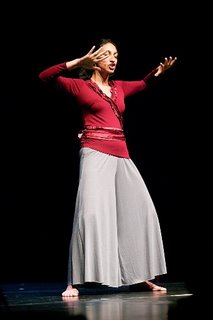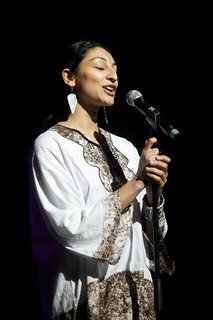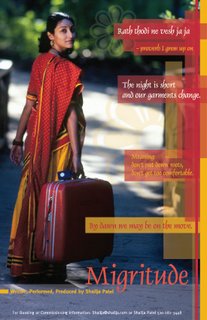Perched precariously atop a sandy hill, the neighborhood of La Encantada looks down over the Pacific Ocean on one side and the sprawling city of Villa El Salvador (southern Lima, Peru) on the other. Most outsiders see only La Encantada’s grinding poverty: its lack of running water, poor sanitation, and shantyhomes. But look closer and you will discover a spirit of camaraderie and a commitment to social justice that battle back poverty with inspiring intensity.
We invite you to explore La Encantada, meet its leader Jesús Valencia, and join in the community's struggle by helping to construct an innovative resource center for the neighborhood.
La EncantadaLa Encantada (“The Enchanted Place”) is one of many neighborhoods that constitute Villa El Salvador, a district in southern Lima, Peru. Villa El Salvador was founded on May 10, 1971, when
25,000 poor Peruvians occupied a stretch of vacant desert and set up shantyhomes.
The residents of Villa El Salvador sought to create a model neighborhood for Lima’s poorest. They organized themselves to bring basic services: transportation, electricity, and health centers, to their community. Despite pervasive poverty, terrorist violence in the 1980s and 1990s, and persistent human rights abuses, residents of Villa El Salvador have worked hard to move toward self-management and self-sustainability.
The story of La Encantada begins in 1996, when a group of young men and women in their twenties formed
The Sons and Daughters of Villa El Salvador. These young people grew up in Villa El Salvador and many of their parents had participated in its founding. The Sons and Daughters followed the example of Villa’s founders by settling uninhabited land on May 10, 1996, hoping to build secure homes and futures for their families.
The early years of the La Encantada saw many challenges, from the struggle to acquire land titles and recognition from the municipality of Villa El Salvador, to protesting a livestock farm that posed a serious public health risk. In the face of poverty and opposition, the citizens of La Encantada refused to abandon their cause. They sustained their commitment to community-led development that has characterized the growth of Villa El Salvador as a whole.
In 2002, La Encantada had to cope with the surprise arrival of hundreds of additional families of settlers. Despite the stress their arrival created, these newcomers were welcomed.
La Familia Valencia HuamánAt the heart of La Encantada and its struggles stands a remarkable couple: Martha Huamán and Jesús Valencia.
Martha was born in the region of Cuzco, tucked away in Peru’s highlands. Jesús is from the northern coastal province of Piura, where he grew up in the desperately poor village of Tablazo Norte. In 1996, Martha and Jesús were a young couple in Lima, penniless, but eager to build a home and family. They helped create La Encantada, where they eventually won legal title to a 25’x 50’ lot (1,250 square feet) and built a makeshift home with a concrete floor.
Over the past five years Jesús grew to be the voice of La Encantada and a prominent figure throughout Villa El Salvador. Jesús has served in several important leadership positions, including Secretary General of the Encantada neighborhood council and President of the Committee for the Defense of Human Rights in Villa El Salvador. Jesús has hosted major political figures, including Peruvian President Alan Garcia and Bolivian President Evo Morales, during their visits to Villa El Salvador, introducing their public appearances for audiences in the thousands.
Perhaps most important, Jesús serves as the President of the Multisectoral Commission, a major government-funded infrastructure project to bring water and sewer drainage service to the 54,000 residents of Lomo de Corvina. Yet despite Jesús’s increasing prominence, he and his family live in extreme poverty, with no running water and an unsanitary hole dug in the sand for a toilet.
Paul and Emily’s Work in Villa El SalvadorJesús found an important partner in Paul Dosh, a
political science professor at Macalester College. The pair met in 2001 while Paul was conducting research in Villa El Salvador. Since then, Paul and his wife Andrea Galdames have financially supported Jesús and Martha, from their own earnings, paying expenses such as school tuition for their three children, Karina (10), Jean Pierre (6), and Rolando (2).
Freed of the need to earn an income, Jesús and Martha devote themselves full-time to community activism. The success of the Multisectoral Commission showcases Jesús and Martha’s hard work. In 1998, the government allocated funds for a major water/sewer project, but the money went unspent and the project failed due to lack of leadership. Now, with Jesús at the helm, the Multisectoral Commission has secured water and sewer services, construction of which began in 2007 and continues today.
Paul and Andrea’s actions show how carefully targeted support of one family can have amazing ripple effects that benefit, in this case, over 50,000 people living without running water and plumbing.
Emily Hedin, a Fulbright scholar and a former student of Paul, joined the team during the summer of 2007 when she worked with Jesús and the Multisectoral Commission as an Upper Midwest Human Rights fellow (a program of the University of Minnesota’s Center for Human Rights). Emily participated in Paul and Andrea’s annual fundraising effort to support “Chocolatadas,” holiday celebrations with free hot chocolate and goodies for Villa’s children.
With the installation of water and sewer infrastructure underway, Paul and Emily then turned their attention toward creating a permanent home for Jesús and his family with space that would benefit all of La Encantada and its movement for community development.
Project DetailsIn partnership with Jesús and Martha and the people of La Encantada, Paul and Emily have crafted a two-dimensional project:
(1) the construction of a permanent, stable home for the Valencia Huamán family, and
(2) an innovative community space, where La Encantada residents can meet, organize, and plan.
We are guided by a vision of a safe home for the family and a useful, non-partisan, and not-for-profit space for all residents.
The ground floor (the public space) will contain:
- large entry room for daily activities
- library and resource center.
- kitchen
- public bathroom
- conference room
- computer room with two DSL-connected computers.
This space will further serve as a museum, archiving the history of La Encantada and visually displaying its inspiring struggles and successes.
The family space located on the second floor will be securely locked off from the public space below. It will include:
- three family bedrooms
- family kitchen
- family bathroom
- small office
- living room
- dining room,
- and, importantly, a guest room. For several years, Jesús and Martha have loved to host foreign daytime visitors to Villa El Salvador. Now they will finally be able to host guests overnight. Jesús and Martha hope you will include Villa El Salvador on your next travel itinerary!
We seek funds for the project through private contributions. On September 12, 2008, we will officially inaugurate the fundraising campaign with a
major benefit concert at Macalester College. We will also involve the community of La Encantada in the fundraising, by soliciting donations of their time, labor, and token financial pledges. We have calculated
$20,000 as a ballpark cost of the project, with groundbreaking in January 2009.
Throughout the fundraising campaign and construction process, we seek to connect all participants — students and professionals in the United States, the Valencia Huamán family, and the people of Villa El Salvador. We invite everyone to participate in the growth and development of La Encantada and strengthen the spirit of social justice activism.
To donate and get involved, contact:
Paul: dosh@macalester.edu
Emily: emilychedin@yahoo.com
Tax-deductible checks can be made out to
Center for Changing Systems (fiscal sponsor), and mailed to:
Paul Dosh
1622 Hague Ave,
St. Paul MN 55104.





